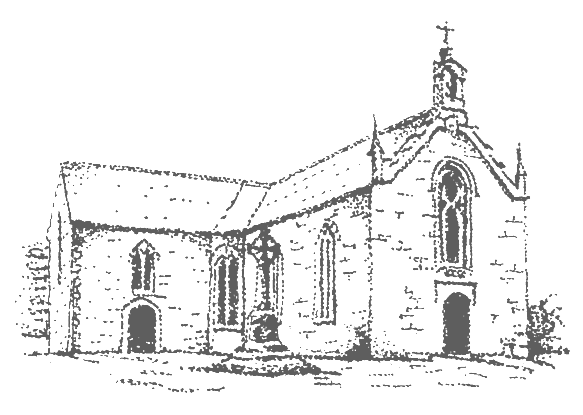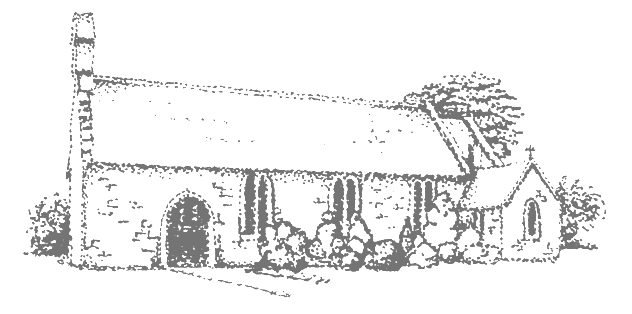Christmas Homily 2019
This year the world commemorated the 50th anniversary of the Apollo 11 space mission and the first landing on the moon by human beings on 20th July 1969. This week it has featured a lot in my reflections on Christmas. Probably all who were alive at that time remember exactly where they were when the momentous event took place. I was in the West Kerry Gaeltacht of Corca Dhuibhne. The group of us watching on TV that night went outside immediately afterwards to look up at the moon. Some said that men landing on the moon had robbed it of its romanticism. But in my case I simply looked up in wonder.
Much has been written and said about that first journey to the Moon. One of the most striking things for me was the first photograph of the earth, taken from the surface of the moon. The earth appears as a blue orb with streaks of white on its surface, presumably the clouds. Whenever I see that photograph or one taken by subsequent space missions the overwhelming experience it evokes for me is one of mystery and reverence. I am simply in awe at this beautiful world that God has created for us.
Now let me refer to another space journey: the Voyager spacecrafts that were launched in 1977 to explore the outer planets of our solar system. Voyager I has now exited the solar system entirely. But just before it did so the scientists at NASA were able to get the craft to turn its camera back towards earth to take a photograph. This photo is also highly evocative. When the photo came through the first reaction of the scientists was, where is the earth? Then they observed a stream/streak of light, presumably emanating from the sun, and within this the earth as a pale, blue dot, barely visible. The overwhelming reaction in this case is how insignificant the earth is, even in our solar system, not to mention in the entire universe. One of the NASA scientists expressed it as, ‘a lonely speck of dust in the vast cosmic darkness’. Another referred to it, more poetically but also emphasizing its unimportance as, ‘a mote of dust in a sunbeam’.
As a Christian what strikes me most is the magnitude and the wonder of the birth of Jesus on this insignificant planet of ours. Why would God, who created the whole universe, ever even dream of being born as a helpless babe among us on our speck of dust? As we ponder this question, surely we should never lose our sense of wonder, mystery and gratitude.
Many of the words of the Apollo 11 astronauts in 1969 have been told and re-told. But among them I recently came across something I hadn’t heard before. One of the astronauts said, ‘On the first day in space we picked out the various countries, and especially our own. On the second day we pointed out the continents, and especially our own. By the third day we were aware of only one earth. We were wonderstruck and fascinated by our unanimous observation that six billion humans, in spite of differing nationalities, languages, customs, religions and traditions –were just one gigantic family. We firmly believed and earnestly hoped that the brotherhood of man would be as real as the Fatherhood of God’.
Jumping forward again to the more recent photograph taken by the Voyager space mission, one of the scientists (Karl Sagen) involved pointed to the dot on the photo taken from the edge of the solar system and said, memorably, ‘That’s here; that’s home; that’s us. On that speck of dust everyone you love, everyone you know, everyone you have ever heard of throughout history, every human being that ever lived out their lives has done so on a mote of dust suspended in a sunbeam… And Rivers of Blood have been spilt by emperors, political leaders and soldiers. How fervent their hatreds and how eager to kill one another for a tiny corner on a lonely speck in the great enveloping cosmic darkness!’
It could be depressing! But on this Christmas ‘Eve we have heard the Prophet Isaiah say, ‘For there is a child born for us, a son given to us and dominion is laid on his shoulders; and this is the name they give him, Wonder-Counsellor, Mighty-God, Eternal-Father, Prince-of-Peace. Wide is his dominion in a peace that has no end…’
And just as the prophets dreamed of a messianic age where there would be no senseless wars, so does the Gospel tonight proclaim the birth of a Saviour who will bring peace. This insignificant speck in the universe and we who live on it are so loved by God that he has come among us to show us the way. Somebody even saw the extravagant presents we buy at Christmas as an effort on our part, even if misplaced, to imitate this extravagant generosity of God. But of course we really are called on to imitate the extravagant generosity of God through our love and kindness towards each other.
The mystery we celebrate today is that Jesus, Son of God, radiant in divine glory, became flesh and dwelt among us. With nothing to gain from being human, nothing to prove, nothing to achieve, and leaving himself completely vulnerable in our sharp-edged world, Jesus entered this world, a mote of dust in a sunbeam, in the fragility and vulnerability of a little baby, born of Mary, for our salvation. That is the heart of the Gospel. We can only ponder in gratitude and reverence.

